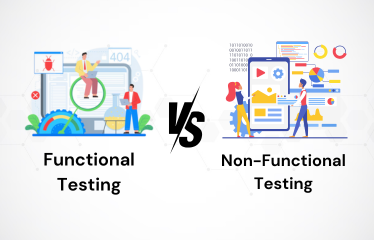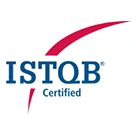Why Automation Testing is Important in FinTech
FinTech applications handle massive amounts of sensitive financial
data and real-time transactions. Any software error can lead to financial losses,
data breaches, or compliance issues. The fast-paced development cycles and the
demand for quick delivery of new features also create challenges in maintaining
software quality.
Here are some reasons why automation testing is essential
in FinTech:
Complexity of FinTech Applications
FinTech applications are multifaceted, involving numerous processes like
transactions, payments, lending, wealth management, and more. Each of these
functions must interact seamlessly to provide users with a secure and flawless
experience. Manual testing, although necessary at times, cannot keep up with the
complex nature of these applications. This is where automation testing services
excel.
Automation testing provides scalability, allowing FinTech companies to test multiple
processes and transactions in parallel. With automated scripts, a wide range of
tests—such as functional, regression, performance, and security tests—can be run
simultaneously, ensuring that the application operates efficiently even under heavy
load.
Regulatory Compliance
One of the key challenges for FinTech companies is ensuring compliance with
stringent regulatory requirements. Any failure to comply can result in hefty fines,
loss of reputation, and legal challenges. Automated tests can be tailored to verify
compliance with specific regulations like PSD2 (Payment Services Directive), GDPR
(General Data Protection Regulation), and other country-specific financial
regulations.
Through continuous integration and deployment, automation testing allows FinTech
companies to identify and address compliance issues early in the development cycle.
This approach reduces the risk of non-compliance and ensures that new updates or
releases do not introduce regulatory breaches.
Security Concerns in FinTech
Security is paramount in the FinTech industry. With applications handling sensitive
data such as personal information and financial transactions, any security breach
can lead to massive losses and damage to the brand's credibility. Automated security
testing helps to detect vulnerabilities, weak points, and potential threats that
manual testing might miss.
Automation testing in FinTech can simulate various cyberattack scenarios, ensuring
that the application has robust defenses in place. By incorporating security tests
into the automation pipeline, FinTech companies can identify potential
vulnerabilities before they can be exploited.
Security Concerns in FinTech
Security is paramount in the FinTech industry. With applications handling sensitive
data such as personal information and financial transactions, any security breach
can lead to massive losses and damage to the brand's credibility. Automated security
testing helps to detect vulnerabilities, weak points, and potential threats that
manual testing might miss.
Automation testing in FinTech can simulate various cyberattack scenarios, ensuring
that the application has robust defenses in place. By incorporating security tests
into the automation pipeline, FinTech companies can identify potential
vulnerabilities before they can be exploited.
Continuous Testing in Agile and DevOps
The agile methodology is widely used in FinTech, where continuous delivery and
deployment are crucial. Automation testing seamlessly integrates into the CI/CD
(Continuous Integration/Continuous Deployment) pipeline, allowing for continuous
testing. This ensures that any updates, new features, or bug fixes are thoroughly
tested in real-time without interrupting the delivery flow.
Continuous Testing in Agile and DevOps
The agile methodology is widely used in FinTech, where continuous delivery and
deployment are crucial. Automation testing seamlessly integrates into the CI/CD
(Continuous Integration/Continuous Deployment) pipeline, allowing for continuous
testing. This ensures that any updates, new features, or bug fixes are thoroughly
tested in real-time without interrupting the delivery flow.
Cost and Time Efficiency
Manual testing is both time-consuming and costly. It requires significant manpower
to test large and complex applications, often resulting in human errors and delays.
Automation testing, on the other hand, allows for the repetitive execution of tests
without human intervention, saving both time and money. Once automated test scripts
are created, they can be reused across multiple test cycles, significantly reducing
the testing time for future updates.
Enhanced Customer Experience
FinTech applications are customer-centric, with user experience being a key
differentiator. Automation testing ensures that every element of the application
works flawlessly, from mobile apps to web interfaces. Performance
testing, for
example, can verify that the app functions efficiently under different network
conditions, ensuring a seamless experience for users regardless of where they are
located.
Furthermore, automation allows for continuous testing and monitoring of
applications, making sure that any performance or usability issues are caught early
and fixed before they can impact customers.





























































